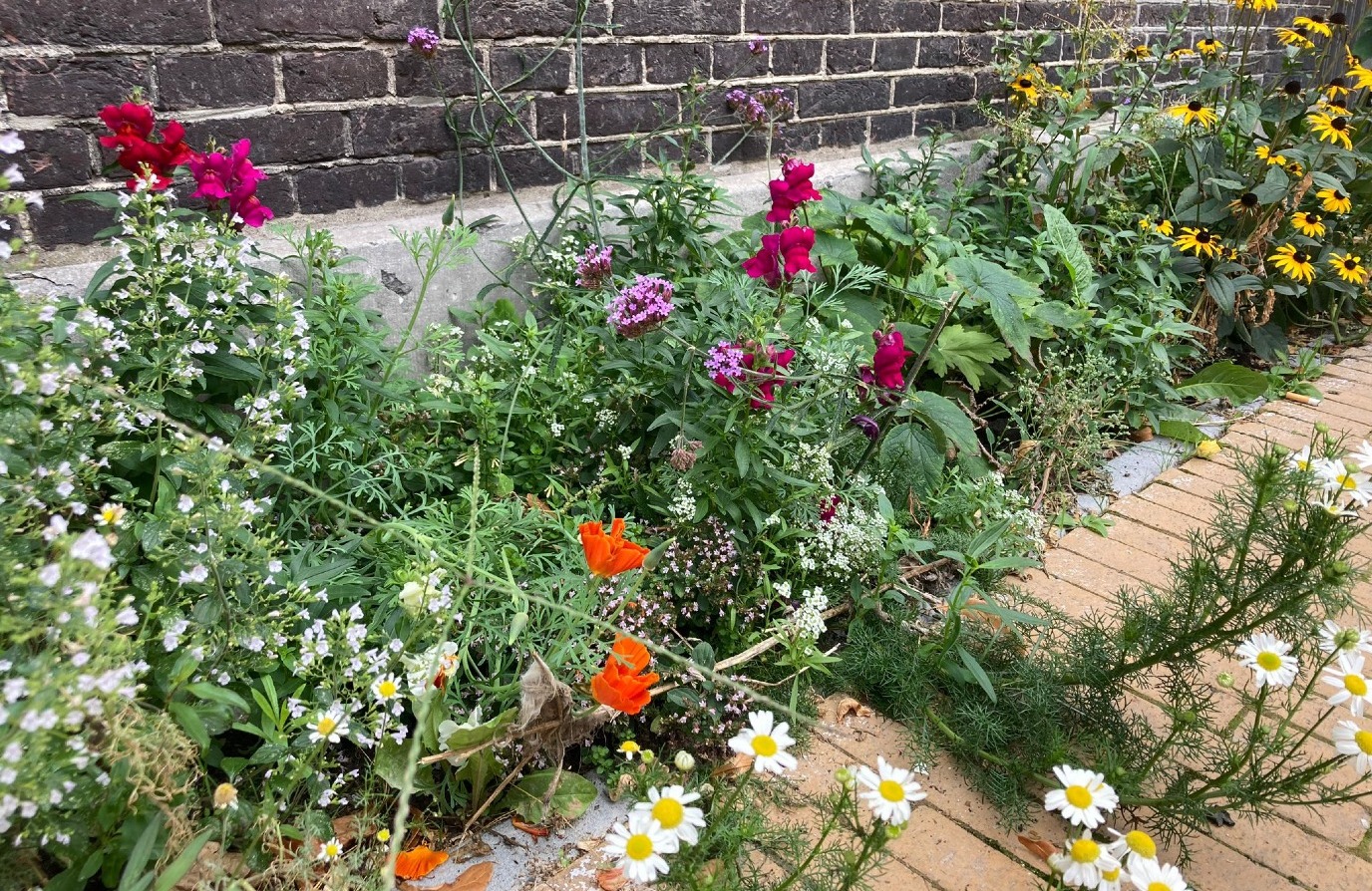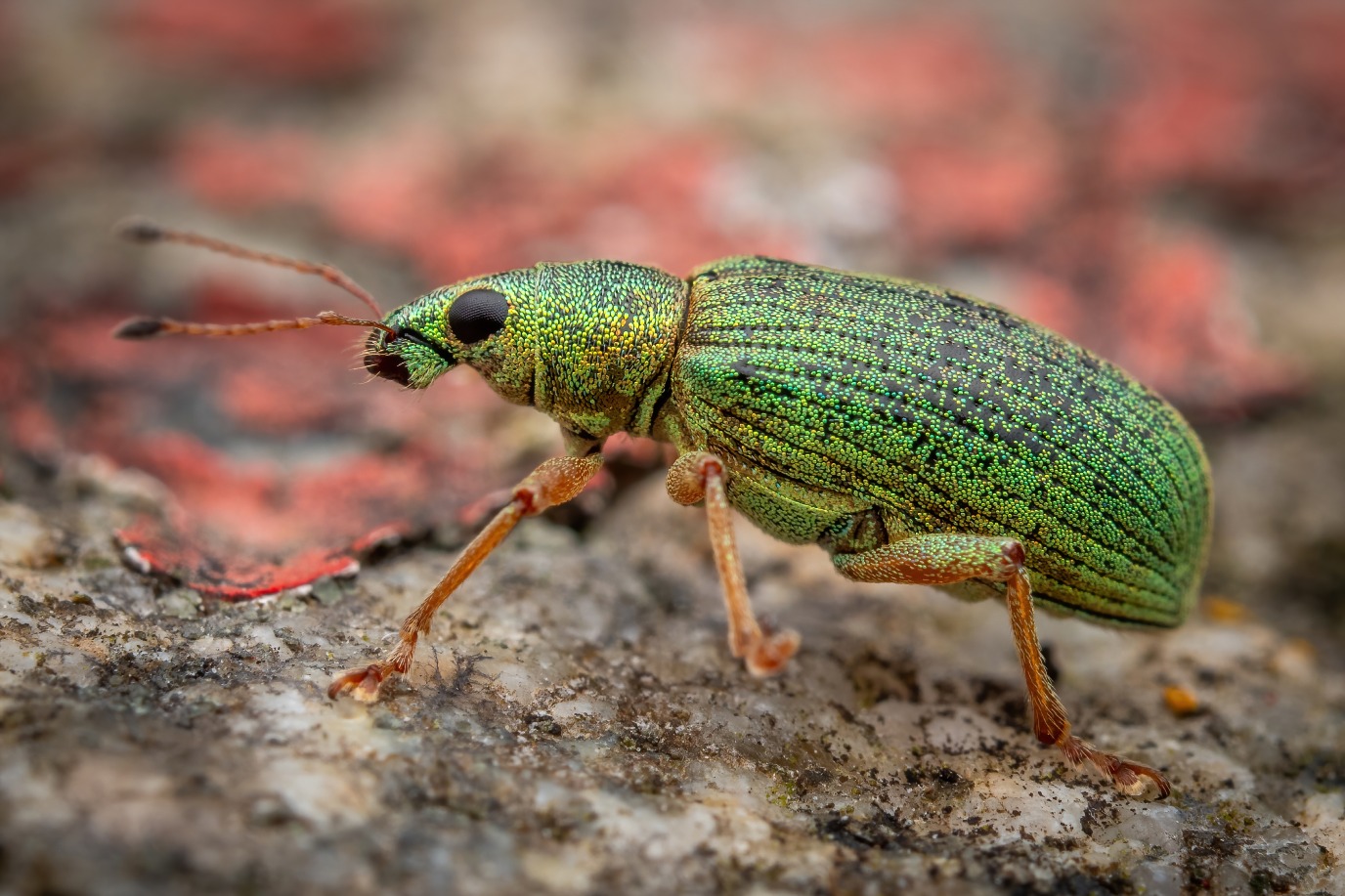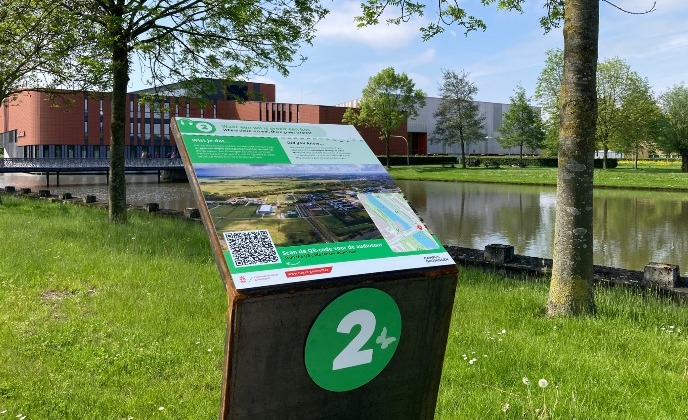Biodiversity Day
Today, Thursday 22 May, is Biodiversity Day. A day that deserves extra attention. Biodiversity impacts us all daily - consciously or unconsciously - even more so because it's under pressure worldwide. What are the consequences of this? And what can you do?
The UG is organising various activities on the occasion of Biodiversity Day. See which ones at the bottom of the page!

What is biodiversity?
Life on earth has many variations. Whether it concerns the smallest bacteria, fungi and plants or the largest animals, the tropical rainforests or the Dutch meadows, every life form, every ecosystem and every genetic variation is unique and irreplaceable. We call this great diversity ‘biodiversity’.
Why is it important?
An ecosystem can only function well if it is in balance, and we all benefit from that. Think of the oxygen we breathe, the food that is cultivated, the absorption of greenhouse gases and the quality of our water. As humans, we are not separate from this, but we are part of it.
Loss of biodiversity
Unfortunately, the negative impact of humans on the earth and biodiversity is tremendous. Natural habitats are dimished on a large scale for food production, infrastructure and urban development. Nature is also being polluted with pesticides and other toxic substances. As a result, species disappear, nature is out of balance and populations are declining, even close to home. For example, a study was published in 2017 showing that in 63 protected German nature reserves the number of insects had decreased by 75% since 1989.
Nature amnesia
We see the world around us every day, but are often not aware of the insects, plants and animals that live there. We can also only look now or recall memories of the past. This limits our view of biodiversity and prevents us from seeing what has already been lost within a few generations. Marc Argeloo (biologist) calls this 'nature amnesia' in his 2022 book of the same title, which literally means memory loss of how we perceive nature. Biodiversity loss is therefore difficult to experience.
What can you do?
You can contribute to more biodiversity in various ways, such as:
-
Greening your environment, for example by removing tiles from your garden, creating a facade garden or sowing wild flowers. Make sure you choose plants that have been grown without pesticides!
-
Consuming less reduces the pressure on nature. An easy way to achieve a lot of impact.
-
What you eat has a big impact on the living environment. Do you want to reduce that impact? Then choose as much plant-based, seasonal and organic as possible. And try to limit food waste.
-
If possible, create a facade garden at your office. Check out the Green Office Facade garden guide for the possibilities. (for staff members)

Activities
BioBlitz ‘Higher education flourishes’ (Hoger onderwijs bloeit)
This year, the UG is once again participating in the BioBlitz ‘Higher education flourishes 2025’ together with other universities. From 22 May to 22 June, you can participate by registering as many observations as possible on and around the University grounds. The goal is to record at least 2500 different species of plants, animals and other organisms.
Buiten/aards leven (Extra/terrestrial life)
What do we actually know about the insect world? And what does biodiversity look like? Visit the University Library and get a glimpse into the special world of insects through the lens of macro photographer Joris Vegter. The exhibition can be found throughout the building and starts at the information boards in the reception hall. You will find the largest works on the 4th floor.
The exhibition consists of more than just photos, there is also a Green Library on the 2nd floor with various works on biodiversity and insects, from fiction and poetry to popular science books. We also asked UG scientists Elzemiek Geuverink and Michella Ligtelijn to tell us something about their research into insects and the observations they make on the Zernike Campus and the Frisian meadows. You can find the information panels in the lobby.

Audio tour
Have you already done the audio tour on the Zernike Campus? The tour starts on the jetties next to the Duisenberg Pond. All you need is a smartphone and earphones. The tour takes you along five different information panels in about 25 minutes, and tells you about the past, present and future of nature on the Zernike campus.

More news
-
15 September 2025
Successful visit to the UG by Rector of Institut Teknologi Bandung
